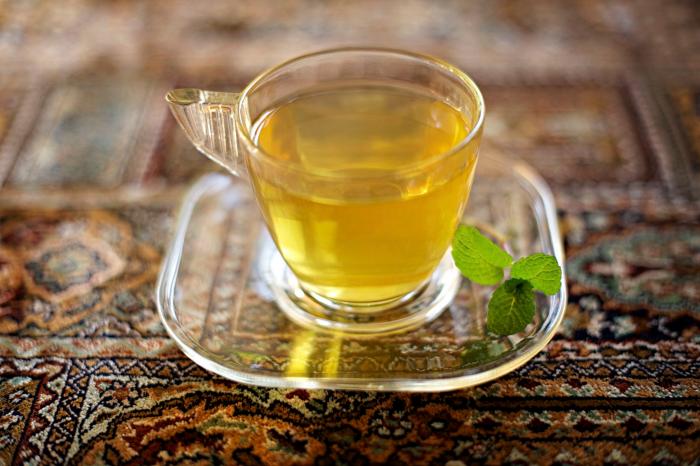Peppermint tea is a popular herbal beverage enjoyed for its refreshing taste and potential health benefits. Many new mothers wonder if it’s safe to consume peppermint tea while breastfeeding. In this article, we will explore the safety of peppermint tea for breastfeeding mothers, its potential benefits, and any risks or considerations to keep in mind.
Understanding Peppermint Tea
Peppermint tea is made from the leaves of the peppermint plant (Mentha × piperita). It has been used for centuries for its soothing properties and distinctive flavor. Peppermint tea is often consumed to help with digestive issues, such as bloating or indigestion. It is also known for its cooling effect and pleasant aroma.
Benefits of Peppermint Tea
Peppermint tea is popular for its potential health benefits, which include:
Digestive Relief
Peppermint tea is commonly used to relieve digestive discomfort. It can help soothe the digestive tract and reduce symptoms like bloating, gas, and indigestion. For breastfeeding mothers, this can be particularly beneficial as they may experience digestive issues after giving birth.
Soothing Properties
The menthol in peppermint has a calming effect on the body. Peppermint tea may help relax muscles and reduce stress. This soothing effect can be helpful for new mothers who are adjusting to the demands of breastfeeding and caring for a newborn.
Refreshing Taste
Many people enjoy peppermint tea for its refreshing and invigorating flavor. It can be a pleasant alternative to more caffeinated beverages, helping new mothers stay hydrated while enjoying a flavorful drink.
Safety of Peppermint Tea While Breastfeeding
In general, peppermint tea is considered safe for most breastfeeding mothers when consumed in moderation. However, it is important to be aware of a few considerations:
Moderation is Key
Like many herbal teas, peppermint tea should be consumed in moderation. Excessive intake of peppermint tea may have potential side effects. It is usually recommended to limit consumption to a few cups per day. This helps ensure that you do not consume excessive amounts of peppermint, which could potentially affect your milk supply or cause other issues.
Possible Effects on Milk Supply
Some studies suggest that peppermint may have a mild effect on reducing milk supply. This is more likely to occur with high doses or excessive consumption. If you notice a decrease in your milk supply after drinking peppermint tea, consider reducing your intake and monitoring any changes.
Individual Reactions
While peppermint tea is generally safe, individual reactions can vary. Some mothers may experience sensitivity or an allergic reaction to peppermint. If you notice any unusual symptoms or discomfort after consuming peppermint tea, it is best to consult with a healthcare professional.
Interactions with Medications
If you are taking any medications or have underlying health conditions, consult your healthcare provider before adding peppermint tea to your diet. Peppermint tea may interact with certain medications or conditions, so it’s important to ensure that it is safe for your specific situation.
Precautions and Considerations
When drinking peppermint tea while breastfeeding, consider the following precautions:
Check Ingredients
Ensure that the peppermint tea you choose is made from pure peppermint leaves and does not contain any artificial additives or sweeteners. Read the label to confirm that it is free from other ingredients that may not be suitable during breastfeeding.
Monitor Your Baby
Pay attention to your baby’s reaction after you consume peppermint tea. While most babies will not be affected by moderate peppermint tea consumption, some infants may be sensitive to changes in their mother’s diet. If you notice any changes in your baby’s behavior or digestion, consult your pediatrician.
Stay Hydrated
While peppermint tea can be a refreshing beverage, it should not replace water or other essential fluids. Ensure that you are drinking plenty of water throughout the day to stay hydrated, especially while breastfeeding.
Consult with a Healthcare Professional
If you have any concerns or questions about consuming peppermint tea while breastfeeding, it is always a good idea to consult with your healthcare provider. They can provide personalized advice based on your individual health needs and circumstances.
Alternatives to Peppermint Tea
If you have concerns about peppermint tea or are looking for other options, consider these alternatives:
Ginger Tea
Ginger tea is another herbal tea known for its digestive benefits. It can help with nausea, indigestion, and bloating. Ginger tea is generally considered safe for breastfeeding mothers and can be a soothing alternative to peppermint tea.
Chamomile Tea
Chamomile tea is often used for its calming and relaxing properties. It can help with stress and promote better sleep. While chamomile tea is generally safe, it is important to ensure that you are not allergic to chamomile before consuming it regularly.
Fennel Tea
Fennel tea is another herbal option that can aid digestion and reduce bloating. It is considered safe for breastfeeding mothers and can provide similar benefits to peppermint tea.
Rooibos Tea
Rooibos tea is a caffeine-free herbal tea that is rich in antioxidants. It is generally considered safe during breastfeeding and can be a good alternative for those looking for a different flavor.
See also: How About Fat-Burning Diet While Breastfeeding
Conclusion
Peppermint tea can be a safe and enjoyable beverage for most breastfeeding mothers when consumed in moderation. It offers various benefits, such as digestive relief and soothing properties. However, it is important to be mindful of potential effects on milk supply and individual reactions.
By paying attention to your own body’s responses and consulting with your healthcare provider if needed, you can make informed choices about incorporating peppermint tea into your diet. Remember to prioritize moderation and monitor both your own well-being and your baby’s reaction to ensure a positive and safe breastfeeding experience.
If you have any concerns or specific health conditions, seeking personalized advice from a healthcare professional can help address any questions and provide tailored guidance for your situation.


